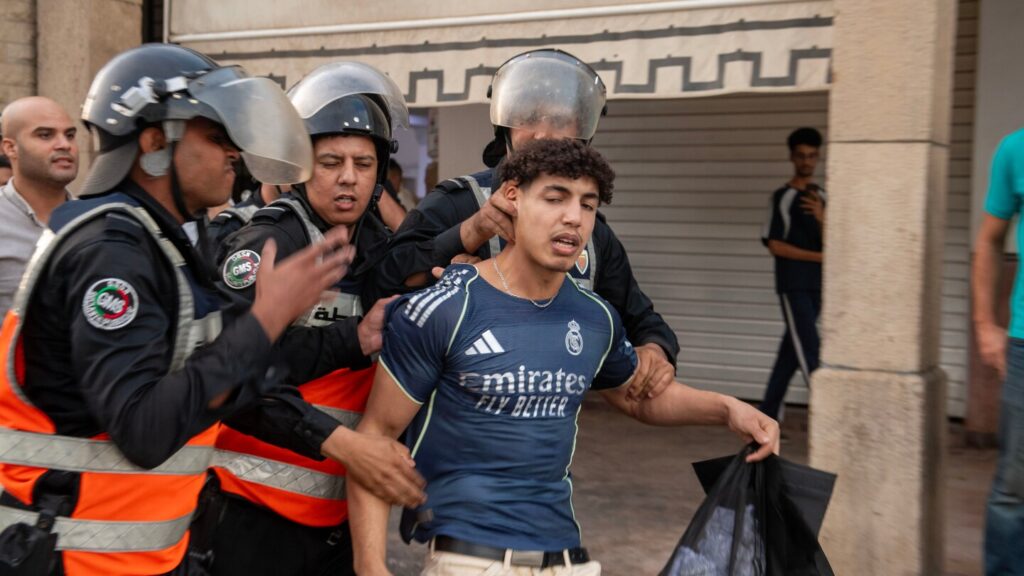Youth-led protests in Morocco escalated into violent clashes with security forces on Tuesday evening, marking the fourth consecutive day of demonstrations across several cities. The protests, fueled by demands for improved education and healthcare, were coordinated online by a loosely organized group calling itself “GenZ 212.” Using platforms such as TikTok, Instagram, and the gaming app Discord, the group mobilized thousands of young people across the country.
In the southern cities of Tiznit, Inzegane, and Ait Amira, as well as Oujda in the east and Temara near Rabat, demonstrations turned confrontational as protesters hurled stones at security forces. According to local media and witness accounts, law enforcement responded with water cannons and heavy security deployment to disperse the crowds.
The protests saw significant property damage. In Ait Amira, demonstrators overturned police vehicles and set fire to a bank, footage shared by local outlets showed. In Inzegane, masked protesters torched another bank and clashed with officers in tense street battles. Several cars were burned, and a group of youths attempted to storm a major supermarket before being pushed back by security forces.
Further south in Tiznit, dozens of protesters clashed with police, chanting slogans including “The people want an end to corruption.”
The growing unrest highlights widespread frustration among Moroccan youth over unemployment, limited opportunities, and what they see as government inaction on essential services. While demonstrations began peacefully, the escalation into violence underscores the depth of grievances and the organizational power of online activism.
Authorities have not yet issued a detailed statement on the extent of arrests or injuries, but the unrest has sparked concerns about stability in a country that has long maintained relative calm compared to others in the region.
As “GenZ 212” continues to gain traction online, observers warn that the government may face mounting pressure to address socio-economic issues to prevent further escalation

